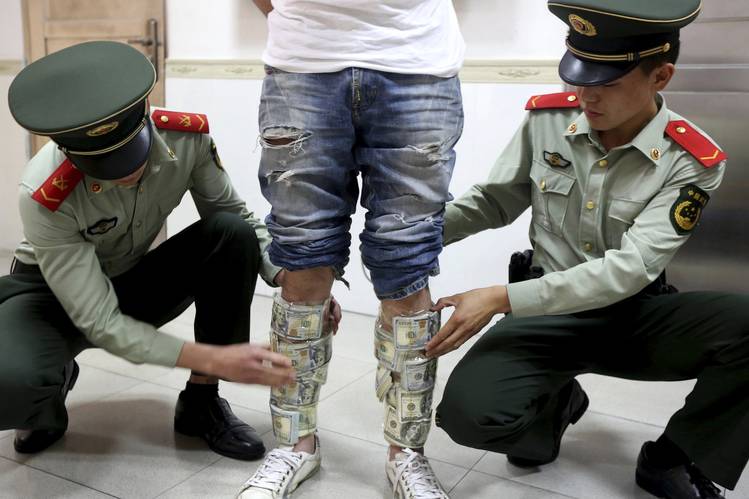In 2016, China has uncovered over 1 trillion yuan ($148 billion) worth of illegal transactions by underground banks. This move was taken in order to foster healthy development of the country’s foreign exchange market and remove the illegitimate money remittances. Further it said that the State Administration of Foreign Exchange (SAFE) will step up investigations into capital outflows and intensify the crackdown on underground banks.
What is Underground Banking?
Underground banking is a generic term used to describe any informal banking arrangements which run parallel to, but generally independent of, the formal banking system. Underground banking systems are also referred to as alternative remittance systems (FATF 1999), informal funds transfer systems (World Bank & IMF 2003) and informal value transfer systems (FinCEN 2003). Particular types of underground banking systems are also used to describe the underground banking process. These include hawala (India), hundi (Pakistan) and fei ch’ien (China) (Passas 1999).
Growing Concern
Underground banking has also long been regarded as a medium for money laundering. It is important to achieve a balance between regulating the underground banking sector in an attempt to reduce the flow of illegal funds, and permitting its continued use as a legitimate, alternative remittance system. It is also used to facilitate a range of disparate crimes, involving intellectual property, arms and drugs trafficking, tax evasion and the smuggling of illegal immigrants.
China’s Crackdown on Underground Banks
Reducing the level of underground banking has become increasingly important for Chinese Government as the country is facing strong capital outflow pressures, partly due to expectations of a weakening yuan. The country’s foreign exchange reserves have fallen by about US$450 billion in the last year despite signs of stabilisation in recent months.
In 2015, Chinese Government cracked the nation’s biggest “underground bank,” which handled 410 billion yuan ($64 billion) of illegal foreign-exchange transactions. More than 370 people have been arrested or face lawsuits or other punishment in the case centered in eastern Zhejiang province.
China continued efforts to break the underground banking system in 2016 as well. As per China’s Ministry of Public Security, hundreds of suspected operators of underground banks have been arrested this year . In all, 450 suspects from 192 illegal banks had been rounded up in relation to 200 billion yuan (HK$234 billion) in illicit transactions.
In June 2016, police in Guangdong arrested 17 people from a network that allegedly posed a “serious threat” to national security. As per officers from the Shenzhen Public Security Bureau’s economic crime department ,the city alone the network laundered and moved more than 30 billion yuan across the border in the last five years.
Be Cautious
Chinese Government is taking extreme measures to curb the illegal trade activities. They are monitoring the cash flows continuously in order stop such activities completely. In one such move the central bank had opened a “green channel” for police, so law enforcers could get access to data to trace underground activities with unprecedented ease and speed. If a bank or factory are found carrying such illegal transactions, the government will cease operations of both the entities.


